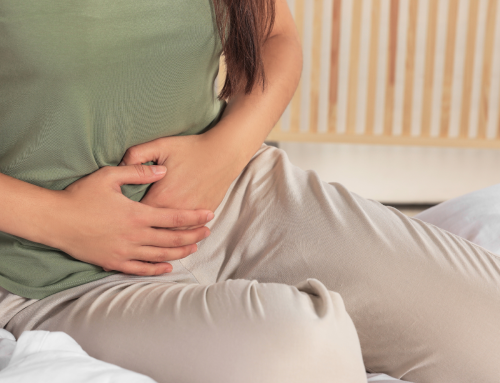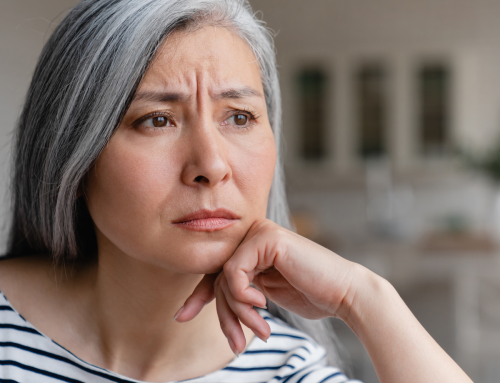The sexual changes that often come with menopause can have a devastating affect on women and their significant others who once enjoyed a healthy sex life together. Too many women keep it the problem to themselves out of embarrassment or guilt, leaving them feeling alone and helpless. We want to help change all that.

In this post, we're going to address head-on some of the most common, menopause-induced sexual problems many women experience (you're not alone) and solutions that can help you rediscover the pleasure of sex again. First up is a lack of desire. A biggie!
Decreased Libido
One of the central issues concerning menopause and sexual function is decreased libido or desire for sex. As the estrogen levels naturally decline in your body, so does the response of the female sex organs, decreasing your desire to have sex in the first place. Hormone replacement therapy may help some women overcome this issue, but it's not the only solution and can have side affects. Many women find that regular physical exercise, a healthy diet, stress-reduction techniques such as yoga or meditation, and counseling can help boost their libido during and after menopause.
Vaginal Dryness
Another common problem that women experience during menopause is vaginal dryness, which is again due to the decrease in estrogen levels. Vaginal dryness can make sex uncomfortable, even painful. Moisturizers and lubricants are effective in relieving vaginal dryness symptoms. Vaginal estrogen products, such as estrogen creams, rings, or tablets, may also offer more effective relief. But before using any topical estrogen products, it's important to discuss this with your health care provider. There are also newer, hormone-free treatments you can buy over the counter that have been proven highly effective at restoring moisture naturally.
Urinary Problems
During menopause, some women may experience urinary incontinence, frequency, or leaking. Leaking can happen during physical activity (such as sneezing or coughing) that puts pressure on the bladder. Fortunately, some behavioral and lifestyle modifications can help prevent or manage this health issue. Kegel exercises, for instance, help strengthen the pelvic floor muscles, reducing the likelihood of urinary incontinence. Avoiding caffeine, alcohol, and artificial sweeteners and maintaining a healthy weight can also help prevent urinary problems.
Painful Sex
Due to vaginal dryness and thinning of the vaginal walls, some women may experience painful sexual intercourse during menopause. This is called dyspareunia. In addition to using a lubricant or moisturizer, oral estrogen hormone therapy, local vaginal estrogen therapy, and vaginal dilators can help reduce pain during sex. Vaginal rejuvenation using a topical treatment with human growth factors is also a popular solution for painful sex, because it's safer than hormones and doesn't require a prescription, while being very effective.
Poor Communication
Besides the physical symptoms of menopause, there's one issue that women often overlook: communication with their sexual partners. Having open communication about one's sexual health is vital in maintaining a fulfilling sexual life. Your partner may feel as lost and insecure about your sex life as you are, so be honest and transparent with each other. Encourage your partner to learn about menopause and its effects on sexual function.
Menopause is a natural biological process that every woman goes through, and it's never a reason to give up on your sex life. By addressing the physical and emotional aspects of sexual health, women can find solutions that promote a healthy and happy sex life, even after menopause. Talk to a healthcare provider for a personalized approach to maintaining sexual health. Remember, it's essential to be open with your partner and communicate about your sexual health to enjoy a fulfilling sex life during and after menopause.






